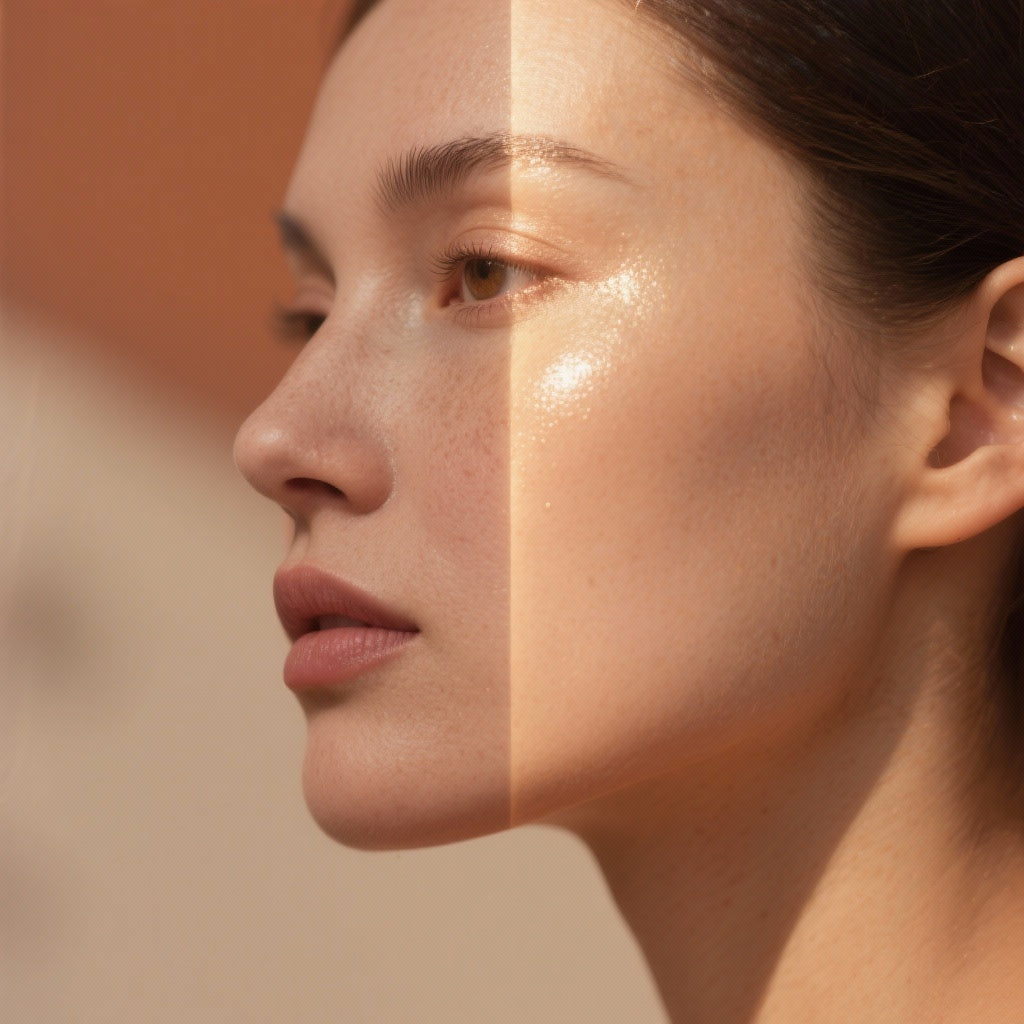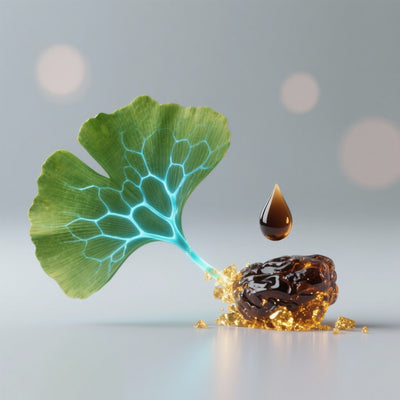10 Tell-Tale Signs Your Skin Is Lacking Essential Minerals (and How to Fix It)
You follow a meticulous skincare routine, you drink plenty of water, but your skin still looks… tired? Dull, reactive, or simply not as radiant as you'd like? If this sounds familiar, the answer might not be in your bathroom cabinet, but rather on your plate. The culprit could be a deficiency in essential minerals , those vital micronutrients that act as the true architects of healthy, resilient skin.
These elements, while necessary in small quantities, are the catalysts for hundreds of biochemical processes that govern your skin's health, from collagen production to protection against external aggressors. In this article, we'll decipher the 10 warning signs your skin sends you and provide concrete, natural strategies to restore this fundamental mineral balance.
Why Are Minerals the Forgotten Superheroes of Your Skin?
Imagine your skin as a complex construction site. Collagen and elastin are the steel beams, lipids are the cement. But what about the minerals? They are the skilled workers and engineers who direct the operations. Without them, nothing is built properly. Zinc, selenium, copper, magnesium, and silicon, to name just a few, are essential.
- Collagen production: Copper and silicon are crucial for synthesizing and stabilizing collagen, which guarantees skin firmness.
- Antioxidant protection: Selenium and zinc are key components of antioxidant enzymes that protect your cells from damage caused by free radicals (pollution, UV, stress).
- Regulation and repair: Zinc regulates sebum production and plays a major role in healing and cell renewal.
- Hydration and balance: Potassium and magnesium help maintain the water balance of cells, preventing dehydration.
"A subclinical mineral deficiency is one of the most underdiagnosed causes of chronic skin problems. The body prioritizes vital organs, and the skin is often the first to show signs of deficiency." - Dr. Alain Dubois, Dermatological Nutritionist.
Unfortunately, intensive agriculture has depleted our soils, and consequently, our food supply. As a result, it's more common than ever to experience deficiencies in essential minerals , even with a diet perceived as healthy. It's time to learn to listen to your skin's signals.
The 10 Warning Signs of a Mineral Deficiency in Your Skin
Your skin is a mirror of your inner health. Observe it carefully. If you recognize several of these signs, it may be time to take action.
-
Dull complexion and lack of radiance
This is often the first sign: a grayish, lifeless complexion that seems to have lost its inner radiance. This lack of luminosity can be linked to slowed cell renewal. Zinc and copper are essential cofactors for the enzymes that eliminate old cells and create new ones, revealing fresh, luminous skin.
-
Persistent dryness and tight skin
Even with the application of moisturizing creams, does your skin remain dry, rough, and uncomfortable? Consider potassium and magnesium . These electrolytes regulate hydration within the cells themselves. Silicon , meanwhile, helps the skin retain water, improving its overall hydration and suppleness.
-
Unexplained Skin Rashes and Acne
Acne, especially around the jawline and chin in adults, can be a major sign of a zinc deficiency. This mineral is a powerful anti-inflammatory and helps regulate sebum production, preventing pores from becoming clogged. Selenium , with its antioxidant properties, also helps to soothe the inflammation associated with blemishes.
-
Slow Healing of Imperfections
A small pimple that leaves a red or brown mark for weeks? That's a clue. Healing is a complex process that relies heavily on zinc and copper . They are essential for tissue repair and the synthesis of collagen needed to rebuild healthy skin after inflammation.
-
Premature Aging: Wrinkles and Fine Lines
If you notice the early appearance of fine lines, your mineral reserves may be low. Copper is vital for the formation of elastin, while silicon is a building block of collagen. Without them, the skin's support structure weakens, leading to sagging and the formation of wrinkles. Selenium and manganese combat oxidative stress, one of the main accelerators of aging.
-
Frequent Redness and Irritation
Skin that reddens easily, is sensitive and reactive, can signal a magnesium deficiency. This mineral is known for its soothing and anti-inflammatory properties. It helps reduce cortisol levels (the stress hormone), which can exacerbate conditions like rosacea or eczema.
-
Oily Skin and Enlarged Pores
Counterintuitively, very oily skin can also indicate a mineral imbalance. As mentioned, zinc is the primary regulator of sebum production. A deficiency can lead to overproduction by the sebaceous glands, giving the skin a shiny appearance and enlarging pores.
-
Pronounced Dark Circles and Bags Under the Eyes
While genetics and lack of sleep play a role, persistent bluish dark circles under the eyes can be linked to iron deficiency (anemia), which reduces blood oxygenation. Puffiness, meanwhile, can be exacerbated by water retention due to a potassium imbalance.
-
Loss of Elasticity and Skin Laxity
If you pinch the skin on your hand and it takes a while to spring back, it's a sign of loss of elasticity. Copper and silicon are once again key players here, essential for maintaining the cohesion and resilience of your skin's collagen and elastin network.
-
Increased Sensitivity to the Sun
Does your skin burn more easily than usual, even with sunscreen? Selenium and zinc offer internal antioxidant protection against UV damage. A deficiency can make your skin more vulnerable to the sun's harmful effects. Important: This is not a substitute for sunscreen!
Replenish Your Skin with Minerals: The 3-Step Strategy
Identifying the problem is the first step. Now, here's how to take holistic action to replenish your skin's minerals.
Step 1: Nutrition, Your First Line of Defense
The most sustainable solution starts in your kitchen. Focus on whole, varied foods rich in micronutrients. Here's a starting list to target key minerals:
- Zinc: Pumpkin seeds, lentils, chickpeas, cashew nuts, grass-fed beef, oysters.
- Selenium: Brazil nuts (just one a day is enough!), tuna, sardines, eggs, sunflower seeds.
- Magnesium: Spinach, almonds, avocados, bananas, dark chocolate (more than 70%).
- Silicon: Oats, cucumbers, peppers, green beans, bananas, nettle (as an infusion).
- Copper: Calf's liver, shiitake mushrooms, cashew nuts, sesame seeds, dark leafy green vegetables.
Tip: For delicious and mineral-rich ideas, explore our recipe blog .
Step 2: Natural Supplements for a Targeted Boost
Faced with soil depletion, a perfect diet may not be enough. Smart supplementation can fill the gaps. Look for natural supplements that offer minerals in a highly bioavailable form (i.e., easily absorbed by your body). Chelated forms (bisglycinate, picolinate) are often superior. Fulvic and humic mineral complexes are also an excellent option, as they contain a broad spectrum of minerals and trace elements and improve overall nutrient absorption.
Step 3: Mineral-Rich Topical Treatments
Don't forget the external approach! Certain minerals can benefit the skin when applied directly. Products containing clay (rich in silicon and other minerals), zinc oxide (soothing and protective), or copper (copper peptides for collagen production) can support your internal efforts. Thermal water spray is also a simple source of soothing minerals.
To learn more about a holistic approach to well-being, check out our lifestyle blog .
FAQ: Your Questions about Minerals and Skin
How long does it take to see results?
Patience is key. The skin's renewal cycle is approximately 28 days, but it can be longer. By adopting a consistent approach (diet and/or supplements), you may begin to notice subtle improvements in 4 to 6 weeks, with more significant results after 3 months.
Is it possible to have an excess of minerals?
Yes, balance is crucial. An excess of certain minerals (like zinc or selenium) can be toxic and create other imbalances. That's why it's best to prioritize dietary sources and, if you take supplements, to adhere to the recommended dosages and consult a healthcare professional.
Are the minerals in tap water sufficient?
Tap water and some bottled mineral waters contain minerals like calcium and magnesium, but the amounts and variety are rarely sufficient to address a significant deficiency. They contribute to overall intake but should not be considered the primary source of all essential skin minerals.
Your Skin Deserves the Best of Nature
Listening to your skin is the first step towards a profound and lasting transformation. These 10 signs aren't inevitable, but valuable messages telling you what your body needs. By nourishing your body from within with a mineral-rich diet and targeted supplementation, you're not just treating the symptoms: you're rebuilding the foundations of truly healthy, resilient, and radiant skin.
Which sign resonates most with your experience? Share your thoughts in the comments below!
To go further in your quest for naturally healthy skin, explore our main information blog .











